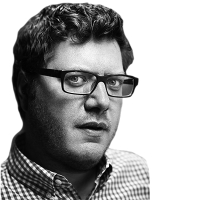While Donald Trump may be famous for his litany of ridiculous boasts and exaggerations, his latest claim to be a top winery owner—made during his speech after the Detroit and Mississippi primaries—may be one of his most laughable.
It’s certainly a perfect example of how The Donald seamlessly mixes truth with fiction to form a narrative that manages to sound plausible when delivered in 30-second sound bites.
Despite begging the assembled media to fact-check his statement about the financials of Trump Winery (what else would he call it?), Trump still made a few major mistakes in his description of the establishment.
For one, despite Trump avowing complete ownership of the business, Trump Winery’s site states that “Trump Winery is a registered trade name of Eric Trump Wine Manufacturing LLC, which is not owned, managed or affiliated with Donald J. Trump, The Trump Organization or any of their affiliates.”
That may explain why Trump Sr. was bit fuzzy about some of the winery’s details; for example, he claimed the vineyard was “close to 2,000 acres,” while in fact Trump Winery’s own website states that it’s a 1,300-acre estate. And, no, the establishment is not located next to the “Thomas Jefferson Memorial.”
We will assume Trump was talking about Monticello, Thomas Jefferson’s home (not the Jefferson Memorial in Washington, D.C.), which is actually several miles from his winery.
His most grandiose claim was that Trump Winery was the “largest winery on the East Coast.”
His 200 planted acres certainly make the winery sizable and the largest one in Virginia by property size. But when discussing the size of a wine or spirits brand, the yardstick is typically case sales, not acreage. (Would you measure an automaker’s size by the square footage of its plant or how many cars it sells?)
One reason for this is the size of the vineyard may not matter given that many wineries buy grapes instead of growing them. “The largest vineyard in Virginia? Maybe. The largest producer? No,” says Jerald O’Kennard the director of the Beverage Testing Institute, which reviews wines and runs wine competitions. “It’s just semantics.”
According to the Virginia Wine Board, Trump Winery is in fact not even the state’s top producer by volume—it falls in the top five. The state’s largest producers are Williamsburg Winery and Chateau Morrisette, which readily admits to buying grapes from a network of Virginia growers.
Trump also failed to give an accurate history of the vineyard. During the press conference he said that media mogul John Kluge “built one of the great vineyards of all time.”
As it turns out, it was really Kluge’s ex-wife, Patricia, who started the vineyard. You might excuse the mistake except that Patricia stayed on to make the wine after Trump bought the property.
It’s also hard to imagine why Trump would bring up his winery as an example of his business acumen given how well his eponymous vodka worked out.
In 2006, to great fanfare, he introduced Trump Vodka (what else would he call it?) in a statuesque bottle with a garish gold label designed by famed graphic designer Milton Glaser.
The launch party, according to New York Magazine, was emceed by rapper Busta Rhymes and, as you can imagine, featured a mix of hired models and “a bunch of middle-aged, slightly overweight white guys.”
Trump was characteristically optimistic about the brand, forecasting that his version of the classic vodka tonic, the Trump & tonic would be a huge hit. The closure of the brand in 2011 was quite a bit less glamorous, with the vodka quietly disappearing from store and bar shelves.
But Trump’s forays into the world of alcohol are particularly odd considering that he’s an avowed teetotaler and that he has spoken quite publically and candidly about his late brother Fred’s struggles with booze.
“He was 10 years older than me, and he would always tell me not to drink or smoke,” Trump told Esquire. “And to this day I’ve never had a cigarette. I’ve never had a glass of alcohol.”
He went even further: “I’ve never understood why people don’t go after the alcohol companies like they did the tobacco companies. Alcohol is a much worse problem than cigarettes.”
A particularly hard stance to take when you’re peddling the “finest wine, as good a wine as you get anywhere in the world.”
His scores on Wine Enthusiast’s site would also disagree with his bravado; most of the wines—which range from a $16 rosé to a $45 Brut Reserve sparkling—are placed solidly in the mid- to high 80s out of a possible 100.
In a weird twist of fate, the one thing Trump didn’t boast about while celebrating his primary wins was that, according to press reports, Kluge wines, the former name of his winery, was served at Chelsea Clinton’s rehearsal dinner, as well at the White House. No doubt it’s a fact neither candidate would like to discuss.






